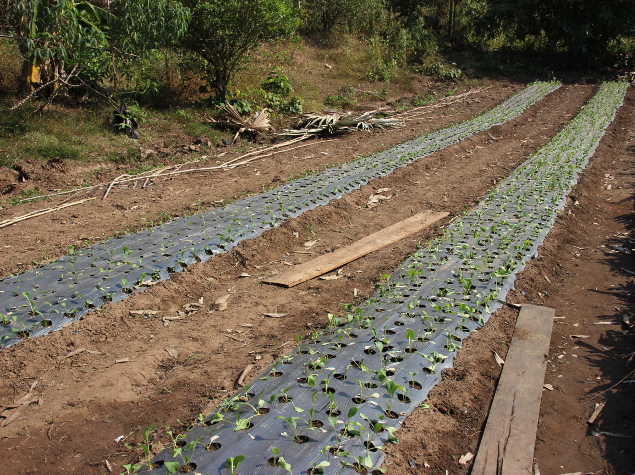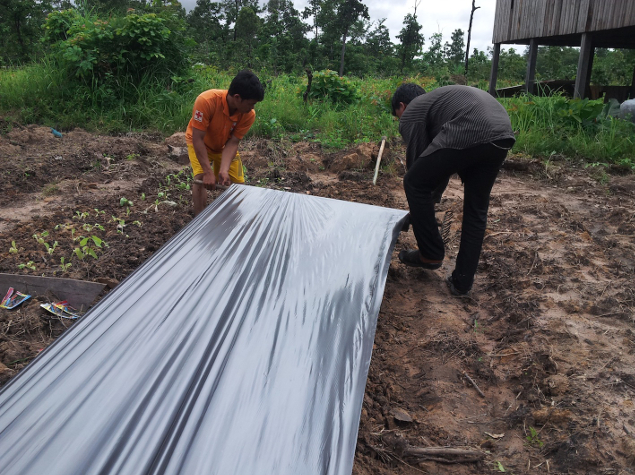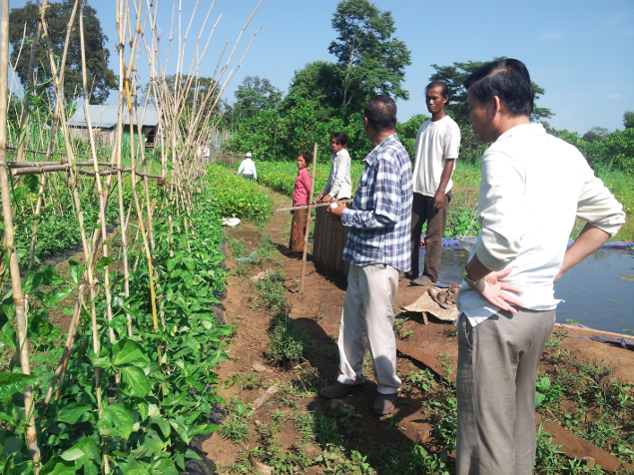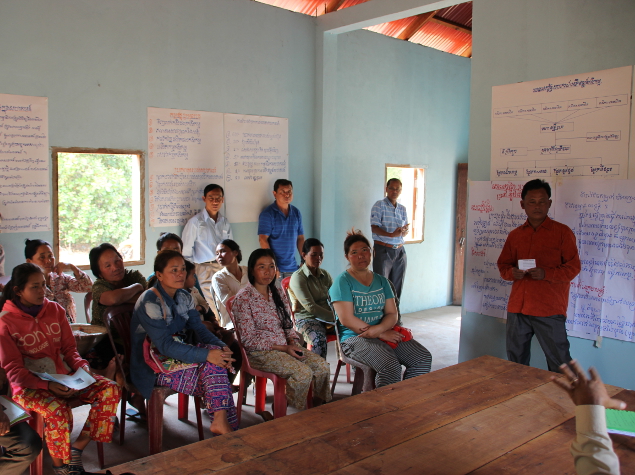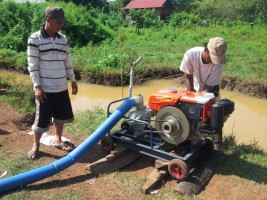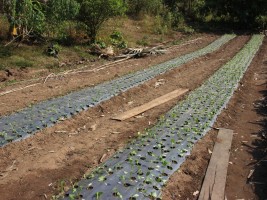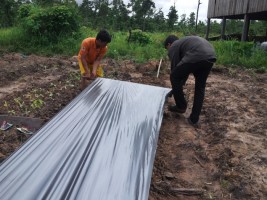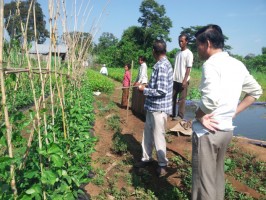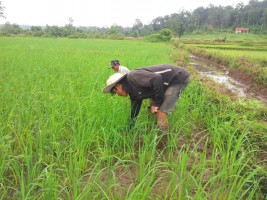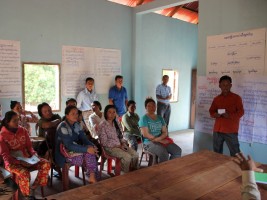Promoting community based climate change adaptation in Ratanakiri
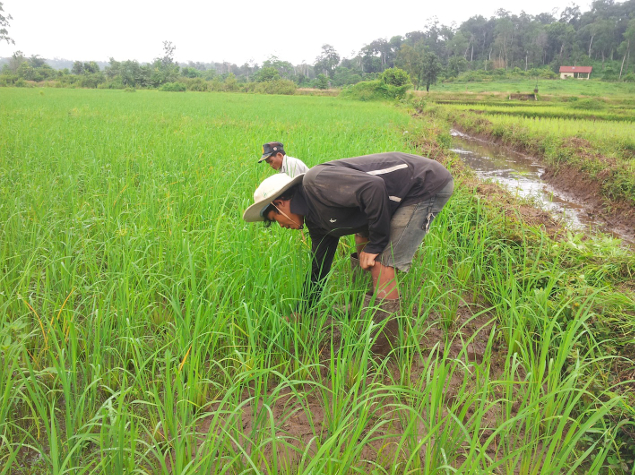
The partner on the ground, Development and Partnership in Action (DPA), is a Cambodian NGO working to empower poor and vulnerable people in rural Cambodia. This organization has been active in the region for 30 years, tackling various issues including land rights, climate change and environmental impact of extractive industries.
This project focuses on rural people living in deforested villages located along the Srae Pok River who are prone to severe annual floods and extended periods of drought. They report that increasing unpredictability of rainfall is contributing to more frequent crop losses, increased hunger and poor health. The communities are very poor and lack sufficient resources and knowledge to prepare and respond against climate shocks and emergencies.
The main objective of this program is to empower poor and vulnerable inhabitants in 12 villages of Ratanakiri province to mitigate and to become more resilient to the negative impacts of climate change. The subsidiary objective is, for these communities, to have reduced vulnerability to natural disasters and to be supported to sustainably improve their livelihoods, food security, and health.
Three majors results are expected:
- The first one is a higher food security and income levels through increased climate-smart and environmentally sustainable farming agricultural and animal productions. In figures, DPA hopes 70% of smallholder farmers increase yields, at least 90% apply climate-resilient agricultural practices and 60% produce and use organic fertilizers and pesticides. Different activities are planned like improvement of financial and social capital, help to ensure fair product market prices or access to seasonal and climate forecast. DPA hopes an increase in household income through a 30% increase in on-farm incomes per household.
- The second outcome is an increased ability and resources to adapt to the impacts of climate change. The partner hopes 70% of village households have reduced vulnerability to the shock of natural disasters through the adoption of climate-resilient techniques and improved governance of natural resources management. Other actions are planned like participatory hazard vulnerability and capacity analysis, community action plans, eco and community-based climate change adaptation workshops, support of the village disaster management teams. Communities will be also empowered to share good practices and their experiences (farmer to farmer extension) around climate change adaptation, water management and integrated farming techniques to new villages in surrounding areas or enhance good governance (so that people can have better participation in the village and commune planning and follow up of the implementation plan).
- The third goal is women have an equal access to information, skills, services and decision-making. Development and Partnership in Action expects they represent at least 40% of all participants in the project and take up leadership positions by at least 30%. They will be provided with the capacity to engage in leadership in their families and for community development.
Finally, the project is expected to have a positive impact on the environment, though this will be difficult to measure within the giving time-scale. However, partner on the ground hopes the project will contribute to a reduced consumption of water through drip-irrigation and use of plastic mulching, reduced soil erosion through reforestation in the form of tree nurseries, production and use of organic fertilisers and pesticides, and an increased use of climate friendly techniques.
Final Report Summary
The project has generated results that go beyond the expected outcomes:
- The project was successful in increasing food security and income levels through improved agricultural practices. By adopting climate-resilient agricultural techniques, the smallholder farmers reported an increase of 75% in crop yields. These new practices also spurred many farmers of rice and vegetables to utilize organic fertilizers, compost, and pesticides.
- Significant results have also been attained with regards to adaptation to climate change. Through improved governance of natural resources and the adoption of new techniques, 92% households have reduced their vulnerability to the shocks of natural disasters. Around 780 community members, half of which were women, participated in the governance of natural resources.
- Women’s access to information, training and leadership positions was also dramatically increased. Women comprised 58% of all participants in the project and occupied 46% of all leadership positions. Women from poor or vulnerable backgrounds were especially encouraged to partake in the activities.


